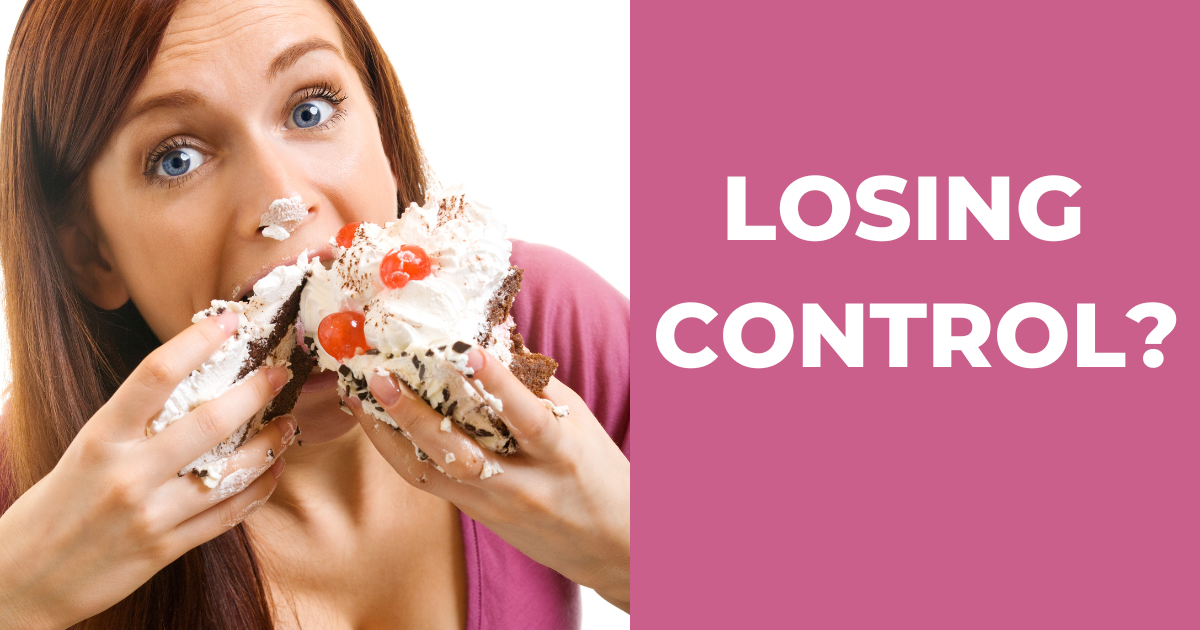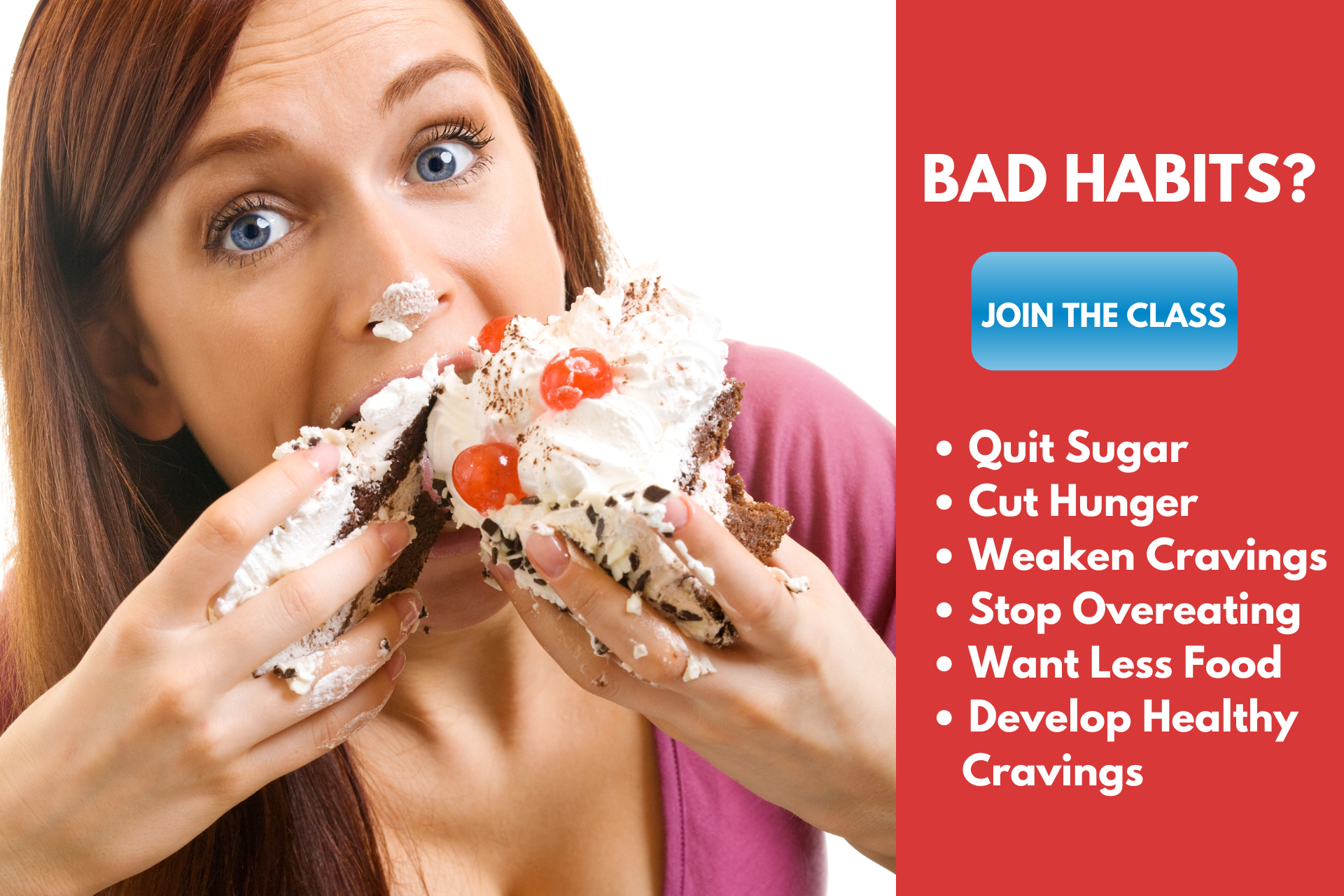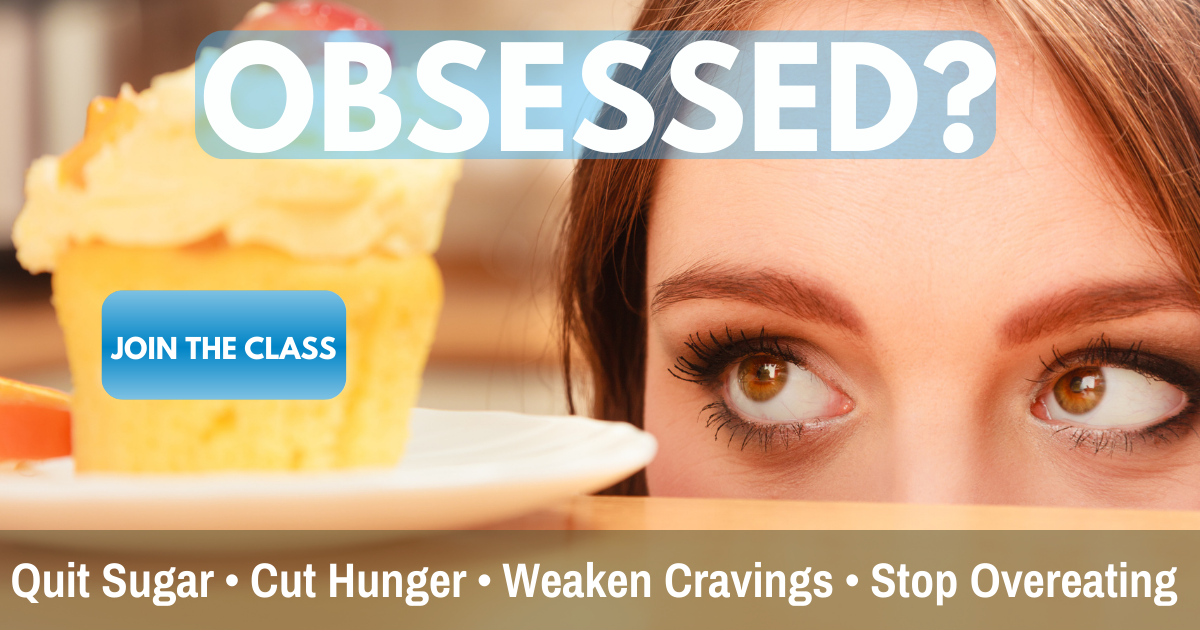
How To Stop Binge Eating
In When To Stop Eating we explored the science that says you're likelier to stop eating if you pay more attention to your taste buds than your stomach.
But sensory specific satiety (how easily your taste buds adapt to flavors) won't help much if you're somebody who tends to lose control, particularly around sugary or salty snacks.
How To Stop Binging on Addictive Foods
The strategy with the most science behind it comes right out of drug addiction research. This body of evidence tells us that the best way to stay clean from drugs is to avoid drug-associated cues.
For a smoker, it might be the sight or tactile feel of a pack of cigarettes. For a drug user, it might be a line of cocaine.
For a binge eater, it can be exposure to food--like leaving food on the kitchen counters, or leaving a yummy dessert in the front shelf of the fridge.
Exposure to food can trigger an irrational, overwhelming loss of control. Scientists call it "food cue reactivity." Later, you'll see researchers describing food cue reactivity as " a strong motivation to eat, even in the absence of hunger” and that it plays an important role in weight management.
According to the National Library of Medicine, food cue reactivity is “a conditioned response to food that is frequently accompanied by increased salivation physiological arousal and neural activity in regions such as the ventral striatum.”
The ventral striatum is the portion of the brain that manages reward, motivation, reinforcement and related thoughts.
Most researchers consider food cue reactivity as a “learned behavior” that conditions people to expect reward, satisfaction, and pleasure at the sight or smell of certain foods. It is not a cognitive process, but more of a physical conditioned response that can drive cravings.
In the journal Obesity Review, researchers wondered about the correlation between food cue reactivity and increased eating and weight gain. So they performed a system review and meta-analysis to summarize the findings in this area of research, quantitatively assessing whether cue reactivity is associated with eating and weight gain.
How To Control Binge Eating: Start With The Research
As anyone who has ever walked by a plate of freshly baked cookies can attest, most of us can intuit that the answer is “yes” to all of the above—food cue reactivity does often lead to increased eating and weight gain. The researchers, however, had to contend with the variabilities of mixed models as well as variances in sex, populations, statistical reporting and cue types (visual or olfactory).
Nevertheless, accounting for all these variables, the researchers found that food cue reactivity did indeed affect eating and weight-gain in both the short-term and the long-term. “Our results demonstrate a robust prospective and predictive relationship between measures of food cue reactivity, including the conscious experience of craving and subsequent food-related outcomes.”
The researchers go on to say that their findings provide “strong empirical support for the idea that exposure and reactivity to food cues, including craving, increase eating and weight, and thus may contribute to rising and persistent rates of obesity.”
They conclude that “on a large scale, the abundance of food and food cues in the modern ‘toxic food environment’ may function as conditioned stimuli that serve as triggers for increased food consumption and can lead to weight gain on a population level.”
How To Stop Compulsive Eating: Stop Cuing
After finding that exposure to visual cues (more potent than olfactory cues, interestingly) tended to result in overeating, the researchers wonder if obesity prevention policies must somehow reduce unhealthy food cue exposure, “including limiting food advertisements or access to high-caloric nutrient-poor foods.”
They point to similar limitations placed on cigarette advertising years ago as an example of imposing limits to cue reactivity.
They also acknowledge that individuals often are not in control of the prevalence of food cues (especially in regard to aggressive advertising of nutrient-poor foods) but that the “associations between cue exposure, craving and food consumption, including cue exposure and response prevention treatments (CERP), cognitive behavioral therapy (CBT) and mindfulness-based therapies,” can go a long way toward mitigating reactivity.
The researchers also draw parallels between “food and drug cue reactivity and craving,” and suggest more research on the similarities of physiological and psychological responses to food and drug cues and outcomes. “Our results parallel findings in the drug literature and suggest that these phenomena are cross-diagnostic and may have important clinical utility,” the researchers stated. Consequently, they recommend “targeting food cue exposure and craving as part of obesity-related public health interventions.”
How To Prevent Binge Eating
Rather than an analysis of existing studies, two psychology professors from Hobart and William Smith Colleges performed a laboratory study to test the influence of, in this case, food reactivity via television shows and amounts of food eaten.
In “Watching a Food-related Television Show and Caloric Intake: A Laboratory Study,” the authors found that “watching food-related television programs may affect eating behavior and has implications of obesity prevention and intervention efforts.”
The “may affect” wording is a scientific hedge—they cannot unequivocally state that watching a show about food drives some people to eat, so they say, “may affect.” However, the study was pretty clear: they discovered that participants watching cooking shows ate “significantly more chocolate covered candies” than those who watched a nature program.
In the journal, Reviews in Endocrine and Metabolic Disorders, the authors identify the biological processes involved with food cue reactivity. In “Food Cue Reactivity: Neurobiological and Behavioral Underpinnings,” they analyse results from both animal and human studies.
Their aim was to “characterize the behavioral and biological processes through which food-associated stimuli contribute to overeating and weight gain.” They found that “data from humans…reveal physiological, psychologocial, and neural mechanisms that connect food cue responsitivity with overeating and weight gain.”
They describe food cues as “visual, auditory, olfactory, emotions, situations and any other cues (e.g., time) that are associated with food-related memories” and point out that Pavlovian and operant conditioning prompts behaviors “directly associated with food intake and can elicity arousal, urges to eat, cravings, expectancies, throughs, drives and motivations to eat.”
To trace the neural pathways involved in “stimulus-induced eating,” the researchers used “lesion-based” disconnections between regions of the basolateral and central nucleus of the amygdala.
Lesions to the former (basolateral amygdala) had more of a mediating effect on excessive eating. The study also traced neuropeptide systems to understanding the neural circuity involved.
They discovered that “the stomach-derived orexigenic hormone, ghrelin, is critical in the induction of cue-potentiated feeding.” Ghrelin is often called the “hunger hormone.” More research is needed on understanding the complex interplay between hormone systems (leptin, ghrelin, cholecystokinin, glucagon, amylin, and insulin) in those with intense reactivity.
How To Not Binge: Curb Food Reactivity
Those susceptible, when presented with food cues, tend to “activate the appetitive network, which includes the hippocampus, amygdala, insula, striatum, anterior cingulate cortex, orbitofrontal cortex and prefrontal cortex.” Curbing food cue reactivity, they summarize, “will be relevant for human obesity prevention and treatment.”
In the journal, Physiology and Behavior, researchers go one step further to examine how to extinguish food-cue activation: “From Lab to Clinic: Extinction of Cued Cravings to Reduce Overeating.” They start with the premise that “food cue reactivity is a strong motivation to eat, even in the absence of hunger” and plays an important role in weight management.
They admit that the Pavlovian conditioning of appetite is easy to learn, while the extinction of such responses are much more “challenging.” They conclude that adding “inhibition training to strengthen inhibition skills that reduce instrumental responding, might be beneficial to improve food cue exposure effects.”
How To Stop Binge Eating
Clearly, an important aspect of "how not to binge" is doing everything you can to avoid food cue reactivity. Your motto should be "out of sight, out of mind, out of mouth."
Let’s look at some of the common sensory cues likely to trigger overeating. Leaving food on kitchen counters where you can see them. That’s like PLANNING your binges, like making an APPOINTMENT to overeat. Therefore it's critical that you keep your comfort food in places you can't see them--inside coverts or pantries, for example.
But don’t turn your pantry into a giant sensory cue for overeating, either. Don't place the addictive food front and center where they scream for attention. You're guaranteeing an overeating trigger every time you open the cabinet door. Place them way in the back where you can’t see them.
Avoiding food cue reactivity involves a lot more than simply keeping addictive food out of your line of site. For a comprehensive strategy to outsmart the instinct to overeat you might want to consider taking the Neuroslim online course. It's based on the evidence we used in this article.
Speaking of which, here are some of the references informing what you just read, along with quotes from the conclusion section of each study:
Boswell, R. G., & Kober, H. (2016). Food cue reactivity and craving predict eating and weight gain: a meta-analytic review. Obesity Reviews, 17(2), 159-177. https://doi.org/10.1111/obr.12354
Quote: Suggesting that cue exposure and the experience of craving significantly influence and contribute to eating behavior and weight gain.
Overall, the present findings suggest that food cue reactivity, cue-induced craving and tonic craving systematically and prospectively predict food-related outcomes.
Bodenlos, J. S., & Wormuth, B. M. (2013). Watching a food-related television show and caloric intake. A laboratory study.
Appetite,
61(1), 8–12.
https://doi.org/10.1016/j.appet.2012.10.027
Quote: Findings suggest that watching food-related television programs may affect eating behavior and has implications for obesity prevention and intervention efforts.
Kanoski, S. E., & Boutelle, K. N. (2022). Food cue reactivity: Neurobiological and behavioral underpinnings.
Reviews in endocrine & metabolic disorders, 10.1007/s11154-022-09724-x. Advance online publication.
https://doi.org/10.1007/s11154-022-09724-x
Quote: The collective literature identifies connections between heightened food cue responsivity and obesity in both rodents and humans.
and identifies underlying brain regions (nucleus accumbens, amygdala, orbitofrontal cortex, hippocampus) and endocrine systems (ghrelin) that regulate food cue responsivity in both species.
Jansen, A., Schyns, G., Bongers, P., & van den Akker, K. (2016). From lab to clinic: Extinction of cued cravings to reduce overeating.
Physiology & behavior,
162, 174–180.
https://doi.org/10.1016/j.physbeh.2016.03.018
Quote: Food cue reactivity can be learned via Pavlovian appetitive conditioning: It is easily acquired but the extinction of appetitive responding seems to be more challenging. A translation to food cue exposure treatment is made and suggestions are provided, such as conducting the exposure in relevant contexts, using occasional reinforcement and targeting expectancy violation instead of habituation. A new hypothesis proposed here is that the adding of inhibition training to strengthen inhibition skills that reduce instrumental responding, might be beneficial to improve food cue exposure effects.
Schyns, G., Roefs, A., & Jansen, A. (2020). Tackling sabotaging cognitive processes to reduce overeating; expectancy violation during food cue exposure.
Physiology & behavior,
222, 112924.
https://doi.org/10.1016/j.physbeh.2020.112924
Quote: Specifically, the violation of overeating expectancies during exposure seems to be critical for controlled eating and should therefore be part of lifestyle interventions for obesity.



